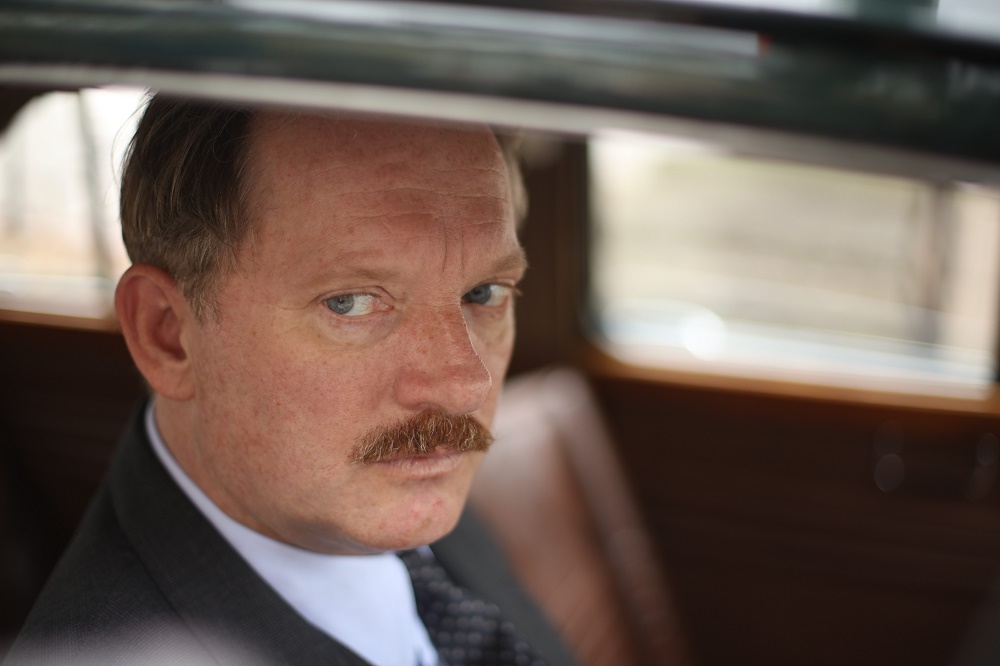Another week, another serial killer on prime time. In Dark Angel we had the grim story of Mary Ann Cotton, the Victorian poisoner who killed her husbands for the insurance. Meanwhile John Christie continues his grim work in Rillington Place. And now In Plain Sight introduces another chilling psychopath going about his business.
While Christie is memorialised in Madame Tussaud’s Chamber of Horrors and in Richard Attenborough’s screen performance, viewers have far less to go on with Peter Manuel, who operated in the same post-war period as Christie and did most of his killing in Scotland. His story has somehow evaded television’s omnivorous enthusiasm for dramas about young women dispatched by sadistic monsters, which is odd, because he’s quite an extraordinary character. As portrayed here, Manuel had a cocksure swagger and the gift of the gab, who despite his years in reform school and Borstal had enough animal intelligence to be able to game the legal system and defend himself in court from a charge of rape – successfully, too.
These stories of evil meeting its comeuppance are a gift for leading actors
In a brief flashback, his motivation was established as payback for the nine years he spent in prison for committing crimes against women in his teens. He emerges bent on giving the run-around to William Muncie (a grim-faced Douglas Henshall, pictured below), the gnarled copper seeking to lay a glove on his elusive opponent. In the opening scene, as Muncie enjoyed a surprise birthday, Manuel even dropped off a birthday card to serve notice of his intention.
As set up by scriptwriter Nick Stevens, this is a duel between cat and mouse. Muncie, who reads killer casesbooks with his wife of an evening, is even fearful that his own will targeted. When a junior officer came to take his daughter out to the pictures, Muncie scowled and insisted she not be let out of his sight.

Where the script doesn’t quite deliver is in explaining how Manuel got away with rape. The court scene in which he demolished the evidence against him by claiming his victim was a discarded girlfriend felt undercooked and disobliged the legal process which acquitted him.
What is it about us viewers that we get off on this stuff? The kindest thing you could say about Rillington Place and In Plain Sight is that they don’t show the rapes, the murders and the dismemberings. Like Manuel offering his first victim his coat and promising to walk her home (“It’s the least I can do”) they pay women a warped form of respect. The strongest suit of both dramas is as studies of forensic psychology. Christie has the edge over Manuel, whose face-off with a nemesis feels like only half the story. JasperRees














Add comment